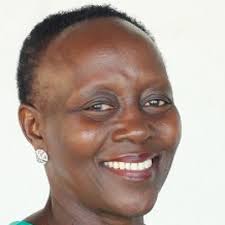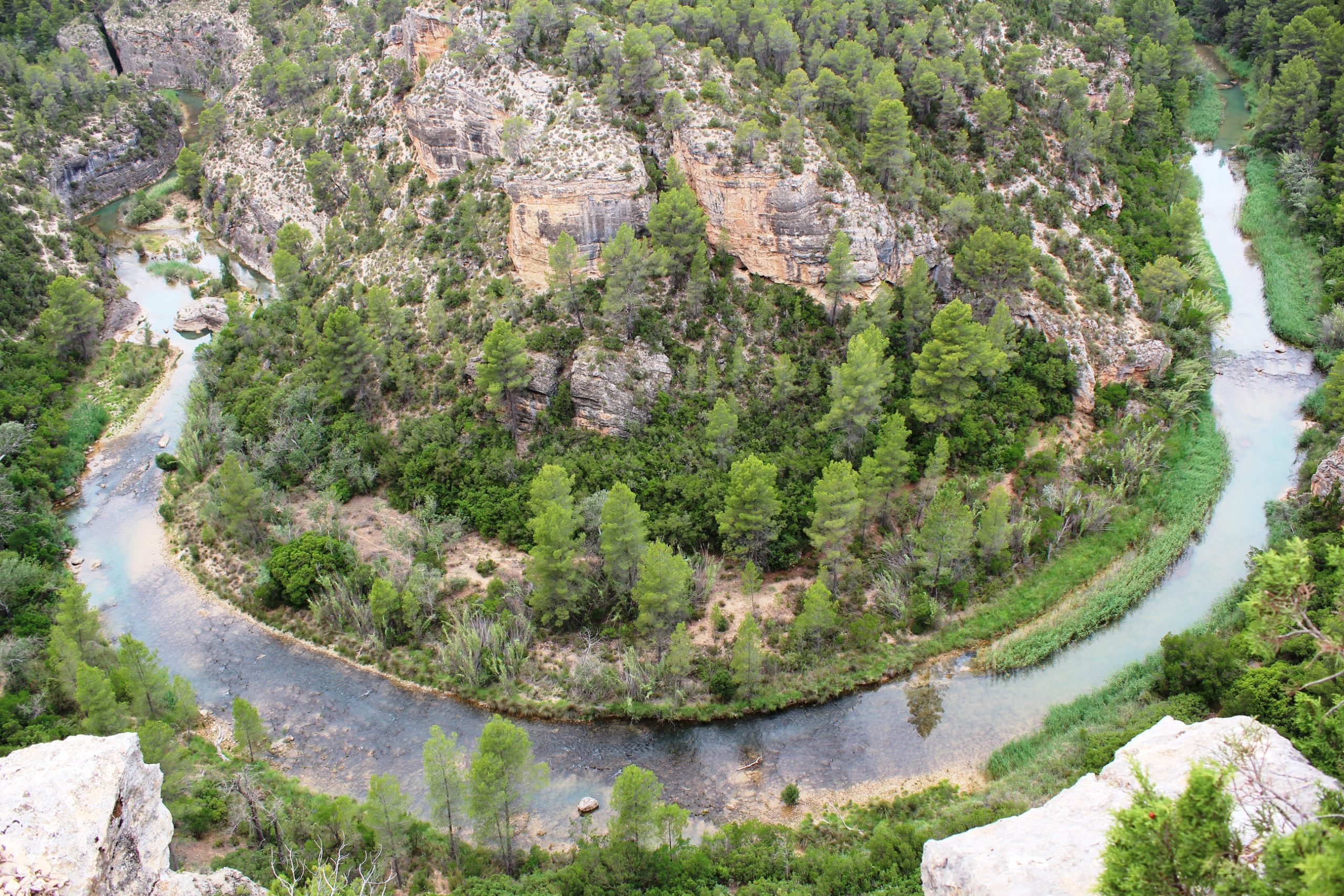Our expectations from post-2020 biodiversity negotiations, by CBD Acting Executive Secretary.
Interview with Elizabeth Maruma Mrema, Acting Executive Secretary of the Convention on Biological Diversity (CBD)
Interview conducted by : Sidi El Moctar Cheiguer, Michael Simiré and Alex Mamy Zaka of ANEJ (African Network of Environmental Journalists)
As delegates from over 140 countries began negotiating the zero draft of the post-2020 global biodiversity framework and targets for nature to 2030 on Monday, February 24, 2020, Elizabeth Maruma Mrema, Acting Executive Secretary of the Convention on Biological Diversity (CBD) in an interview for ANEJ unveils expectations at the weeklong event holding in the Italian Capital, Rome.
ANEJ : What are we expecting from this round of négociations ?
Elizabeth Maruma Mrema : We hope that at the end of this week, we will have a clear direction and instructions moving forward in terms of the nature or expected nature of the draft post-2020 global biodiversity framework.
You know today (Monday, February 24, 2020) delegates have begun giving their general comments. We will move into contact groups from tomorrow and to specific comments. And then off course these being negotiations, they will give the co-chairs instructions of what next. We still have to get an overview or better understanding of whether we will have a revised zero draft from this meeting, which I doubt, in which case where the parties would have agreed on certain areas then the co-chairs cannot probably revise those.
But where there might be different views on specific areas, maybe the co-chairs then can work on them and propose text for the next meeting. But this is yet to be decided and that is why I’m saying that by the end of the week, we hope one has a better understanding of the content of the zero draft and on that understanding are instructions from the parties regarding how do we move forward? Will we have a draft text from here? Or views which the co-chairs can continue to work on for the third meeting in July.
ANEJ : What if we make remarkable progress here, how would July pan out?
Elizabeth Maruma Mrema : It will be excellent. Because then July will be to finalise the negotiations. But I will be surprised; that will be a miracle. But that would have been our goal. Because the views so far expressed clearly, they are divergent views, not divergent views contradicting the zero draft, but more divergent views in the sense of wanting to see more.
So, there is a balance which will have to be created between what the parties as simple, innovative, transformative framework, but on the other side in simple there was already a preliminary agreement that the target should not be more than the current one.
So, currently we have 20. The Aichi Targets which are many. So basically, they do not expect more than 20. But off course the debates are already on we want to see a target on this, we want to see a target on gender. So, there will need to be that balance to be made at some point between a really ambitious simple document or a book, because of any issues which may be added.
It is our hope that the negotiators will not read the zero draft in the context of their expertise or their mandate. In other words, when you begin, you want to see if gender to be reflected in every target. That might be difficult. Or when we say we want a target on migratory species; we can have a target on species which is already there, but now if you go too specific then it might be ambitious, but it will no longer be a simple document.
And if we begin that trend of we want this, we want that, virtually every delegate will also add their own component, and that might even be difficult to balance. So, again we are just beginning, let’s see by the middle of the week how thigs will be unveiling.
ANEJ : What is in all this for Africa?
Elizabeth Maruma Mrema : So far at the intervention from the African Group, there have underlined that yes, we can have the new biodiversity framework but as part of the means of implementation that will not be accompanied with the support both financial, technical, capacity building, then the framework will be on paper. So, in which case what is coming out clearly from Africa is that they are in favour of a new framework. Yes, they are ready to implement but they might need to be supported for the effective implementation on their part.
ANEJ : It appears sensitisation is not so much reflected in the zero-draft strategy. How do you intend to address this?
Elizabeth Maruma Mrema : The awareness outreach I think is the last part of the strategy, so its there. The question probably may be: is it clear enough? Is it action oriented to really make a difference ? And these are the discussions going on. But at least the co-chairs have seen that importance and it is there. So probably we might say that its not strong enough so that’s the language which negotiators now have to play with, but at least it is there.
In terms of the Super Year 2020, I think Africa is not yet on board in terms of helping us to create that awareness. And this is where you can help us. We know that biodiversity is very important for Africa, we know for Africa that biodiversity is also the link between agriculture and production, food systems, importance of fisheries, forestry; all these are issues of key importance to Africa.
But I’m not sure Africa is a continent even at the level of policy makers are really aware of what is happening. Now, when we say that this year is the Super Year for Biodiversity, what does it mean for Africa? And I think this is where you come in.
When we talk of poverty alleviation, we cannot talk of poverty eradication if its not to do with nature, if its not to do with biodiversity, if its not to do with agriculture, if its not to do with food systems. I don’t think there’s any continent which knows better the impact of pesticides on the land and on agriculture production than Africa.
But are those connections really made for the continent to be able to make that difference particularly as this process goes on. Because remember that this is a global process, and we are now at international level. When the framework is adopted, implementation is no longer here, it will go to the countries at the national level.
So, unless the countries are on board now, when it comes down for implementation this is where questions will begin – where is this coming from? Who was engaged? Who was involved? What were our views? The good thing Africa has already done, at the last AMCEN in December the African Negotiators group for the post-2020 biodiversity was created.
So, there is a group of countries which has been set up lead to Africa in these negotiations. I’m not sure if they’re here; its good to check to really get what has been their role and what impact are they bringing in these discussions. After AMCEN formed the group, they met in January and we received their document on what Africa wants. But you see, receiving and writing and talking about it are different, because if they don’t talk about it so that then the negotiators have it in their minds in the negotiation, then it remains in paper.
We have received many contributions in writing, and they are all on the website, but they (the NGOs, businesses, etc) are still talking in summary about what they submitted in writing. Because what they say is what people will remember. Not everybody will read what has been written. Of course, the co-chairs will read, but they will not be able to pull that out after this meeting if those issues were not mentioned and discussed here. Because then the negotiators will ask them: where did you get this? Who talked about it? We didn’t here about it, I was there at the negotiations.
So, submitting is one thing, but is proper that the views are also aired so that they can be reflected in the report for instance they can also be reflected in the next interactions as negotiations continue. So that is something again the negotiators need to bring about. I thought the spokesperson for the African negotiators would have at least talked about it but I didn’t hear that there was this group that was established by the Environment Ministers to lead Africa in the negotiations for the post-2020 biodiversity, which to my understanding apart from the European Commission which normally have their own coordination.
I would say probably Africa is far advanced, but it could be advanced in those preparations, but those preparations if they are not reflected here, then they are lost. And this is where you come in.
Interview conducted by : Sidi El Moctar Cheiguer, Michael Simiré and Alex Mamy Zaka of ANEJ (African Network of Environmental Journalists)

